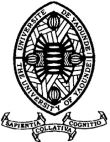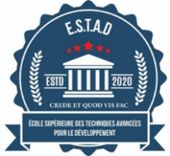Evaluating the Rationality of Artificial Intelligence Using Soumaila's Formula: A Neuromathematical and Ethical Perspective
Évaluation de la Rationalité de l'Intelligence Artificielle à l'Aide de la Formule de Soumaila : Une Perspective Neuro-mathématique et Éthique
DOI:
https://doi.org/10.5281/hra.v2i9.5995Keywords:
Artificial Intelligence (AI), Rationality of AI, Ethics of AI, Soumaila's formulaAbstract
ABSTRACT
Introduction. This manuscript proposes a new approach to evaluate the rationality of artificial intelligence (AI) projects through an innovative formula called "Soumaila's formula". Methodology. Starting from the idea that AI seeks to mimic human intelligence (HI), the author uses an analogy with a flight of stairs to explain how AI can be streamlined. The formula is based on Blondel's law and takes into account the number of objectives of the AI and the age of the founder or promoter of the project. Results. The results obtained show a classification of AI rationality levels, providing a practical perspective to evaluate and guide the development of AI projects. The manuscript also addresses the ethical implications of AI and the need for robust frameworks to ensure fair and responsible use of AI technologies. Conclusion. This innovative research opens up new perspectives for the evaluation and ethical integration of AI in various fields.
RÉSUMÉ
Introduction. Ce manuscrit propose une nouvelle approche pour évaluer la rationalité des projets d'intelligence artificielle (IA) à travers une formule innovante nommée "formule de Soumaila". Méthodologie. En partant de l'idée que l'IA cherche à imiter l'intelligence humaine (IH), l'auteur utilise une analogie avec une montée d'escalier pour expliquer comment l'IA peut être rationalisée. La formule se base sur la loi de Blondel et tient compte du nombre d'objectifs de l'IA et de l'âge du fondateur ou promoteur du projet. Résultats. Les résultats obtenus montrent une classification des niveaux de rationalité de l'IA, offrant une perspective pratique pour évaluer et guider le développement de projets d'IA. Le manuscrit aborde également les implications éthiques de l'IA et la nécessité de cadres robustes pour garantir une utilisation équitable et responsable des technologies d'IA. Conclusion. Cette recherche innovante ouvre de nouvelles perspectives pour l'évaluation et l'intégration éthique de l'IA dans divers domaines.
References
Calvin, William H., Wie das Gehirn denkt. Die Evolution der Intelligenz, Elsevier, München, 1998, 2004 (How brain think, Orion Publishing Group, 1996).
Définitions de l’intelligence. In: Thomas Wallenhorst. Développer son intelligence. Ville d’édition: Ellipses; 2009: 11-18.
Numerica. L’intelligence artificielle, les machines sont-elles déjà plus intelligentes que nous ? Linxe: Editions plume libre; 2020.
C. Manaouil, S. Chamot and P. Petit, Le médecin confronté à l’IA (Intelligence artificielle) : Éthique et responsabilité, Méd droit (Paris) 2024, https://doi.org/10.1016/j.meddro.2024.02.001
Fondeur B, Gigleux R. L’IA dans le workflow d’interprétation des examens d’imagerie. IRBM News 2023;44(3):100468.
Downloads
Published
How to Cite
Issue
Section
License
Copyright (c) 2024 Soumaila Boubacar

This work is licensed under a Creative Commons Attribution-NoDerivatives 4.0 International License.
Authors who publish with this journal agree to the following terms:
- Authors retain copyright and grant the journal right of first publication with the work simultaneously licensed under a Creative Commons Attribution License CC BY-NC-ND 4.0 that allows others to share the work with an acknowledgement of the work's authorship and initial publication in this journal.
- Authors are able to enter into separate, additional contractual arrangements for the non-exclusive distribution of the journal's published version of the work (e.g., post it to an institutional repository or publish it in a book), with an acknowledgement of its initial publication in this journal.
- Authors are permitted and encouraged to post their work online (e.g., in institutional repositories or on their website) prior to and during the submission process, as it can lead to productive exchanges, as well as earlier and greater citation of published work










